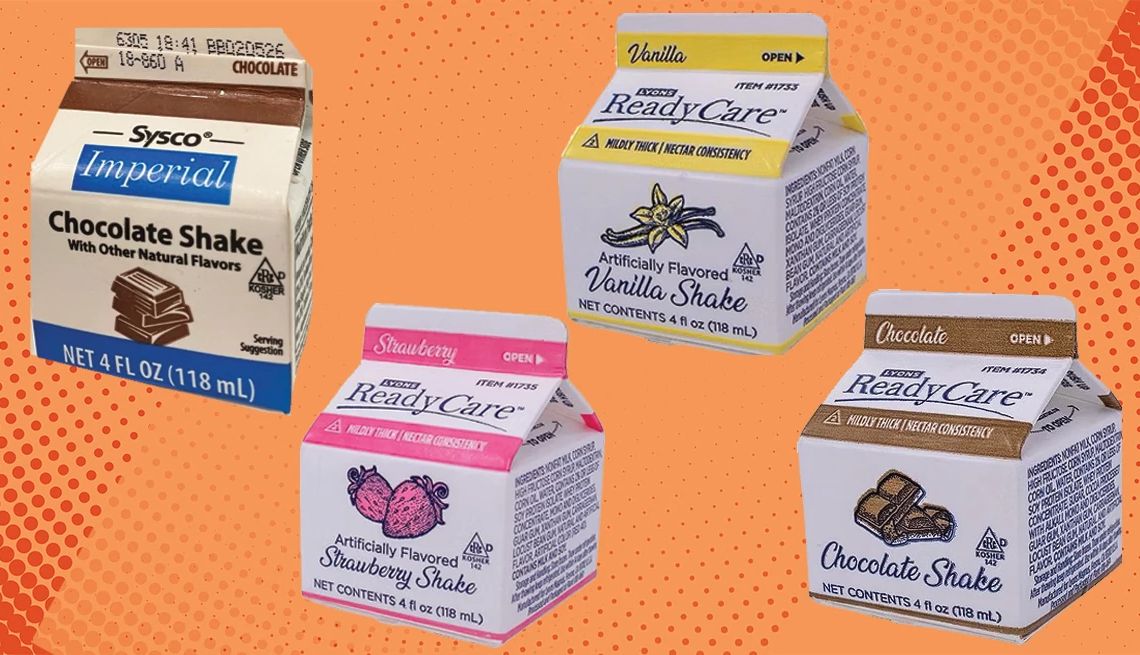
Listeria outbreak linked to shakes used in nursing homes
- Select a language for the TTS:
- UK English Female
- UK English Male
- US English Female
- US English Male
- Australian Female
- Australian Male
- Language selected: (auto detect) - EN
Play all audios:

An outbreak of listeria linked to supplemental shakes distributed to hospitals and nursing homes has resulted in 12 deaths, the Food and Drug Administration (FDA) announced. The shakes were
delivered nationwide to institutional settings like long-term care facilities and were most commonly given to patients on medically necessary soft diets. The contaminated products are not
available to the public. Thirty-eight illnesses have been reported across 21 states, leading to 37 hospitalizations. While the outbreak is still ongoing, cases date back to 2018, with 20
occurring in 2024 and 2025. The ages of those infected range from 43 to 101, with most cases occurring in adults 65 and older. The CDC stated that it had investigated the outbreak in
long-term care facilities and nursing homes as early as 2018, as well as in 2021 and 2023, but lacked sufficient information to pinpoint a specific food source. The case reopened in October
2024 after six new illnesses were reported. Four months later, the FDA found that every nursing home with invoice records from 2024 onward had received shakes from one of the two brands.
Environmental samples from Prairie Farms' Fort Wayne, Indiana, facility also tested positive for a listeria strain closely linked to the outbreak. Prairie Farms has since voluntarily
recalled the frozen supplemental shakes sold under the Lyons ReadyCare and Sysco Imperial brands. Consumers with questions may contact the company at [email protected]. The
states with confirmed cases are Alabama, California, Colorado, Connecticut, Florida, Illinois, Indiana, Maryland, Michigan, Minnesota, Missouri, North Carolina, Nevada, New York, Ohio,
Oklahoma, Pennsylvania, Tennessee, Texas, Washington and West Virginia. THE RECALLED SUPPLEMENTAL SHAKES The recall applies to 4-ounce Lyons ReadyCare and Sysco Imperial Frozen Supplemental
Shakes with best-by dates from Feb. 21, 2025, to Feb. 21, 2026, and includes the following products: * ReadyCare Frozen Vanilla Shake; Item number: 1733 * ReadyCare Frozen Chocolate Shake;
Item number: 1734 * ReadyCare Frozen Strawberry Shake; Item number: 1735 * ReadyCare Frozen Vanilla Shake NSA; Item number: 1736 * ReadyCare Frozen Strawberry Shake NSA; Item number: 1737 *
ReadyCare Frozen Chocolate Shake Plus; Item number: 1747 * ReadyCare Frozen Strawberry Shake Plus; Item number: 1749 * ReadyCare Frozen Vanilla Shake Plus; Item number: 1754 * ReadyCare
Frozen Strawberry Banana Shake NSA; Item number: 1844 * ReadyCare Frozen Chocolate Shake NSA; Item number: 3633 * Imperial Frozen Vanilla Shake; Item number: 3338 * Imperial Frozen Chocolate
Shake; Item number: 3339 * Imperial Frozen Strawberry Shake; Item number: 3340 * Imperial Frozen Vanilla Shake NSA; Item number: 3341 (No best by date listed) * Imperial Frozen Strawberry
Shake NSA; Item number: 3342 (No best by date listed) * Imperial Frozen Strawberry Banana Shake NSA; Item number: 3364 (No best by date listed) * Imperial Frozen Chocolate Shake NSA; Item
number: 3699 (No best by date listed) SYMPTOMS OF A LISTERIA INFECTION Listeriosis, a serious infection caused by consuming food contaminated with listeria , poses a significant risk to
adults 65 and older. They are four times more likely to be infected, according to the CDC. Symptoms of a listeria infection can include neck stiffness, confusion, loss of balance,
convulsions, fever, muscle aches, and fatigue. Pregnant women typically experience milder symptoms such as fever, fatigue, and muscle aches, but the infection can lead to pregnancy loss,
premature birth, or severe illness and death in newborns. The CDC estimates that about 1,600 people in the U.S. develop listeriosis each year, resulting in approximately 260 deaths. Anyone
experiencing symptoms of severe Listeria illness should contact their health care provider.
